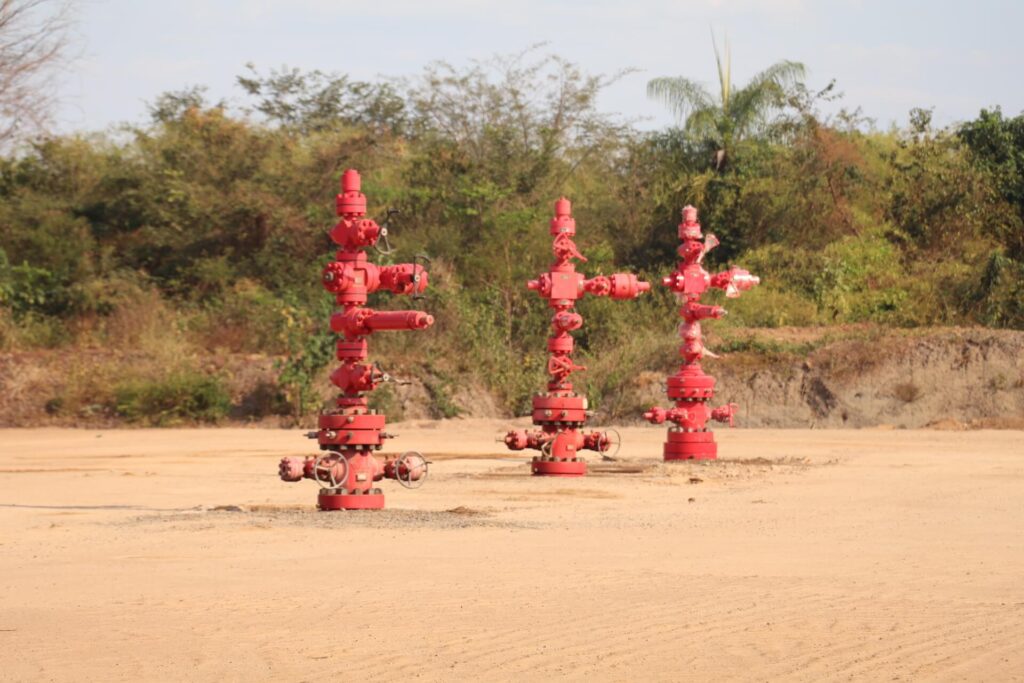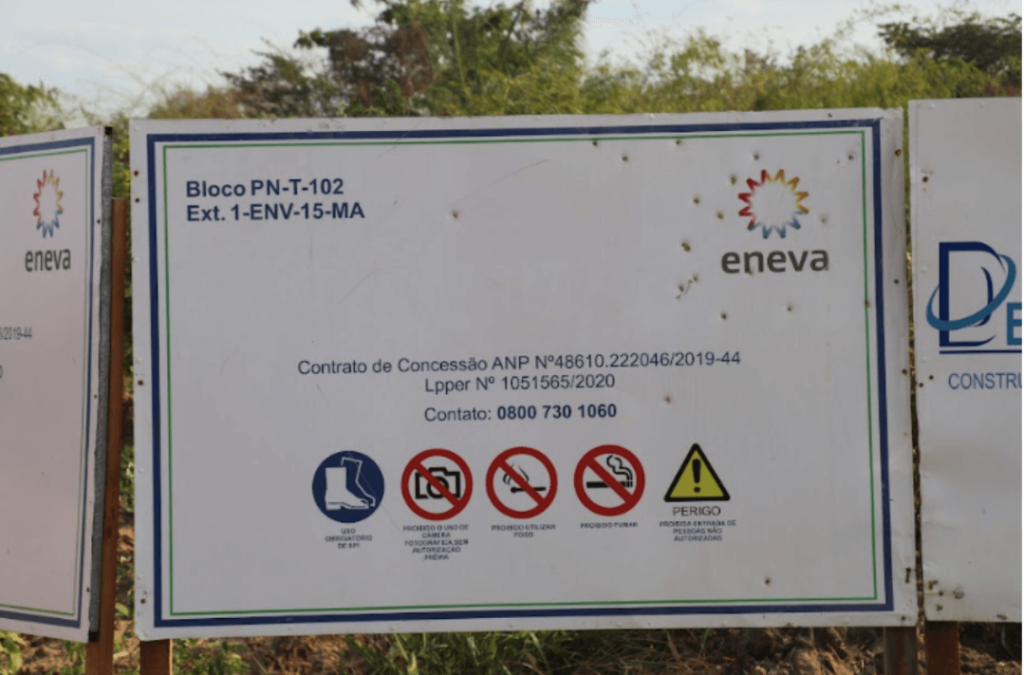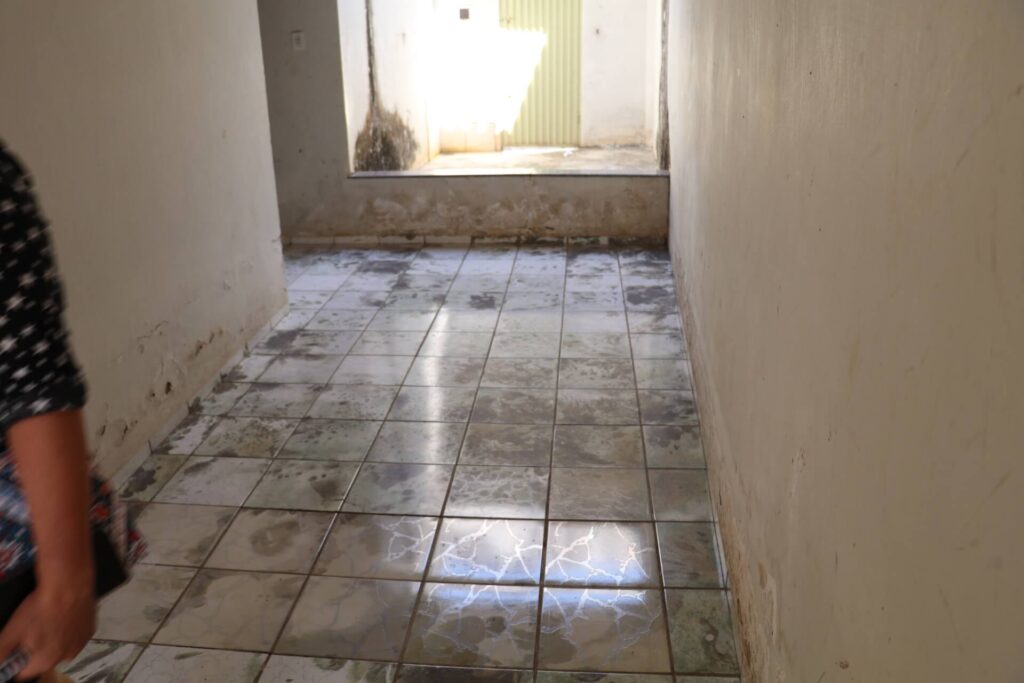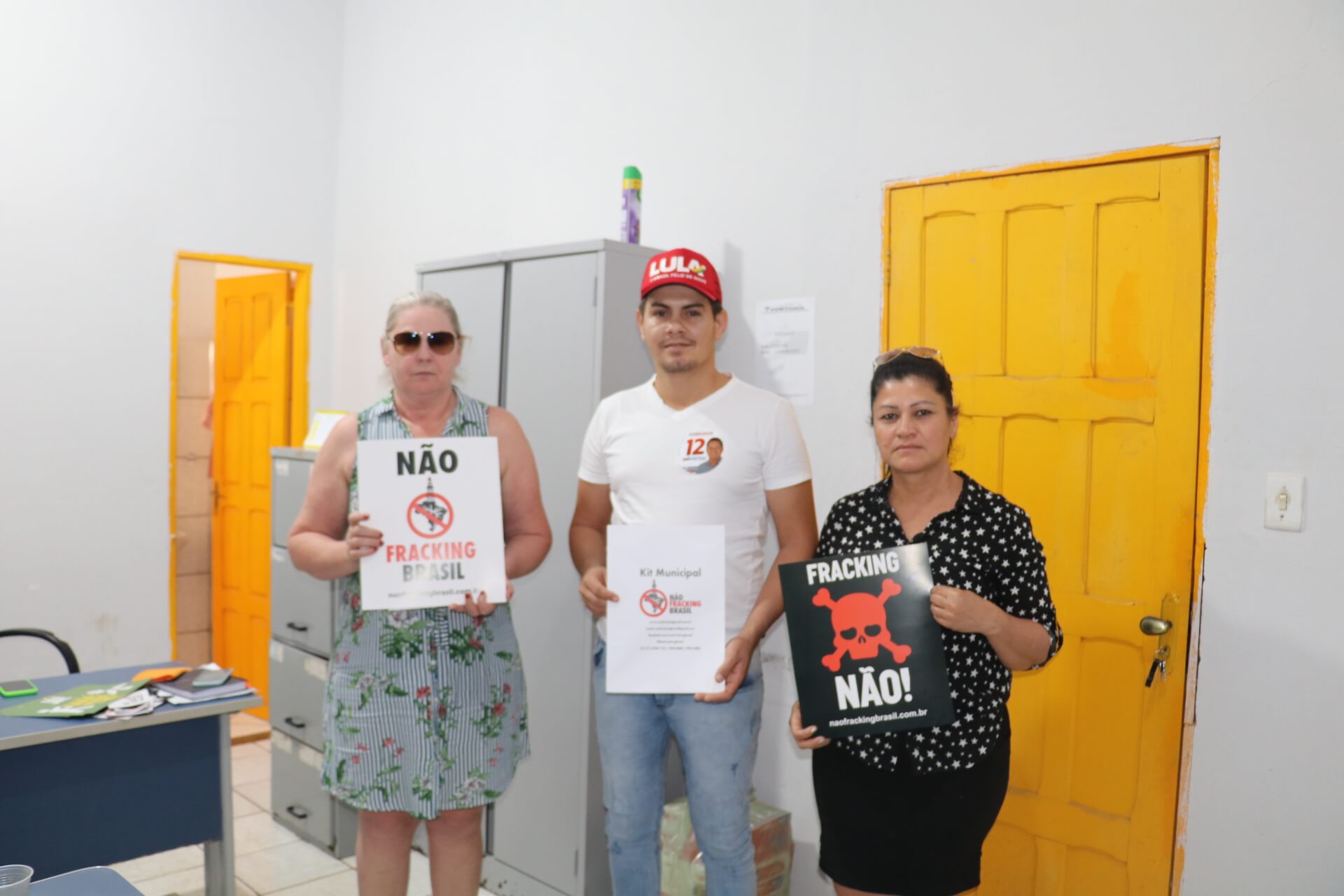Maranhão city undergoes research for potential natural gas exploration in its territories
What is fracking?
Fracking – also known as hydraulic fracturing – is a process that involves injecting large volumes of water, chemicals, and sand at high pressure into underground rock layers to release trapped natural gas. Although this technique is already used in several countries, it is controversial due to its environmental and ecological damage, including groundwater contamination, greenhouse gas emissions, induced earthquakes, etc.
The municipality of Fortuna, Maranhão, received a visit from the COESUS team – No Fracking Brazil Coalition for Water and Life, a campaign by the Arayara International Institute, on September 9, 2022. A technical inspection was conducted in two blocks where the petroleum company ENEVA is conducting gas exploration research. The extraction method used by the company could not be identified, but it was found that gas extraction does not bring wealth to the municipality.

Research wellheads for shale gas extraction in Fortuna/MA.
No Fracking Brazil was received by the advisor to the presidency of the council, Tonni Rodrigues, who received campaign materials and an anti-fracking bill. When asked if the municipality was aware of locations for shale gas exploration, Rodrigues affirmed and indicated the research site to the team.
COESUS went to the City Council, where they noted the lack of maintenance in the building. The state of the “people’s house” shows the absence of development caused by gas exploration in the city.
While walking through the streets, squares, and other places in the municipality, it is possible to observe white signs with numbers that identify the exploration blocks of the petroleum company. This practice is also common in Argentina, a country that already adopts the hydraulic fracturing technique known as fracking.
A little-known phenomenon called “environmental racism” affects various cities in Maranhão, including Fortuna. Petroleum companies prefer to carry out their operations in municipalities that suffer from this type of racism, as it facilitates the use of seductive strategies and deceptive promises to deceive the population, further contributing to the marginalization of these localities.

White signs with numbers identifying gas exploration blocks.
Environmental racism occurs when the population of a particular region is disproportionately harmed by the installation of polluting industries or extractive activities that compromise the environment. These communities, usually composed of low-income individuals and minority ethnic groups, face negative environmental impacts in their daily lives, from water and soil contamination to degradation of health and quality of life.
In the case of Fortuna, gas extraction is not bringing the promised economic benefits to the city. The lack of maintenance in the municipal council is just a visible example of neglect and lack of investment in local infrastructure. While the petroleum company seeks to profit from gas exploration, the population of Fortuna suffers from the negative consequences of this activity.

Room inside the City Council of Fortune/MA.
The technical visit by COESUS raises important questions about the development model adopted in the municipality. It is essential to have a broad and inclusive debate about the social and environmental impacts caused by gas exploration and other extractive activities in the region. It is necessary to seek sustainable alternatives that value the well-being of local communities, promoting development in a fair and equitable manner.
COESUS is engaged in raising awareness and mobilization against fracking and other environmentally harmful extractive practices affecting communities. The coalition seeks to expand the debate and promote actions that aim to preserve natural resources and protect populations affected by these activities.












